
You’ve played good games, maybe even great ones—but today, we’re talking about perfection.
These are the games that redefined what gaming could be. They left critics speechless, fans obsessed, and the industry in awe. Whether you’re seeking epic adventures, breathtaking visuals, or unforgettable emotional journeys, this list has it all.
Are you ready to step into the gaming hall of fame and discover what peak perfection truly looks like? Once you see this list, you’ll be itching to play every single one. Let’s dive in.
Every now and then, a game doesn’t just raise the bar—it becomes the bar.
- Red Dead Redemption 2
- The Witcher 3: Wild Hunt
- Elden Ring
- God of War
- Sekiro: Shadows Die Twice
- Cyberpunk 2077
- Baldur’s Gate 3
- The Last of Us
- The Elder Scrolls V: Skyrim
- Uncharted 4: A Thief’s End
- Bloodborne
- A Plague Tale: Requiem
- Batman: Arkham City
- Middle-Earth: Shadow of Mordor
- Nier: Automata
- Black Myth: Wukong
- The Legend of Zelda: Breath of the Wild
- Portal 2
- Hollow Knight
- Persona 5 Royal
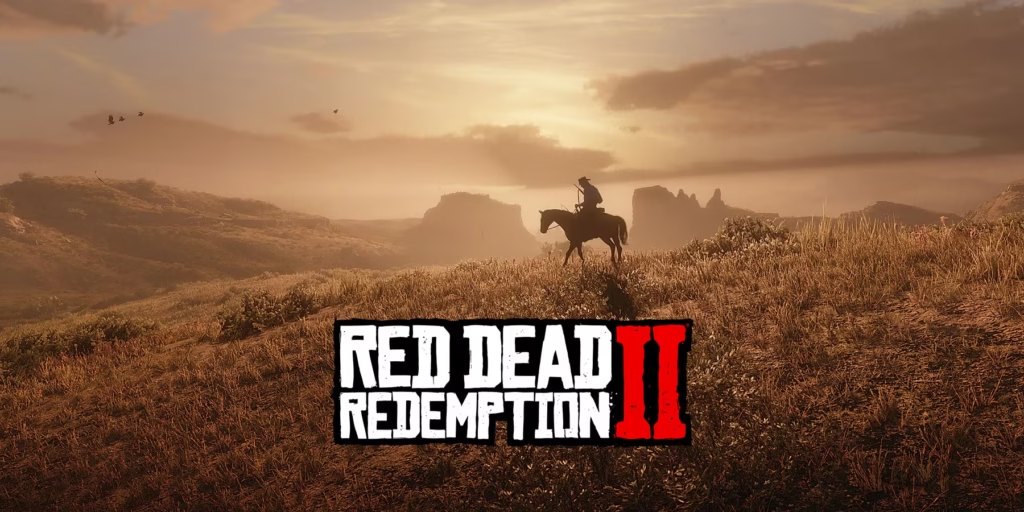
For me, Red Dead Redemption 2 is that game. When I first stepped into Arthur Morgan’s boots, I wasn’t just playing a game—I was living in the beautifully chaotic Wild West. The way the world reacts to your actions and evolves as you navigate through it is nothing short of magical.
What struck me the most was the staggering attention to detail. From the way horses’ manes blow in the wind, to townsfolk remembering your deeds, and even Arthur’s beard growing over time, the world feels truly alive.
Whether it’s trekking through snow-covered peaks or watching the sun dip below the horizon in the heartland, every inch of this game exudes immersion. Yet, what truly stays with me is Arthur’s journey. His internal struggle—torn between loyalty to Dutch and his growing moral awakening—is raw, poignant, and profoundly human.
I found myself deeply invested in his every decision, and, let me just say, some moments genuinely broke my heart. Red Dead Redemption 2 isn’t just an open-world game—it’s a masterpiece that exemplifies why gaming is the ultimate storytelling medium.
If you haven’t played it yet, trust me, you’re missing out on an experience as vast, emotional, and unforgettable as the frontier itself.
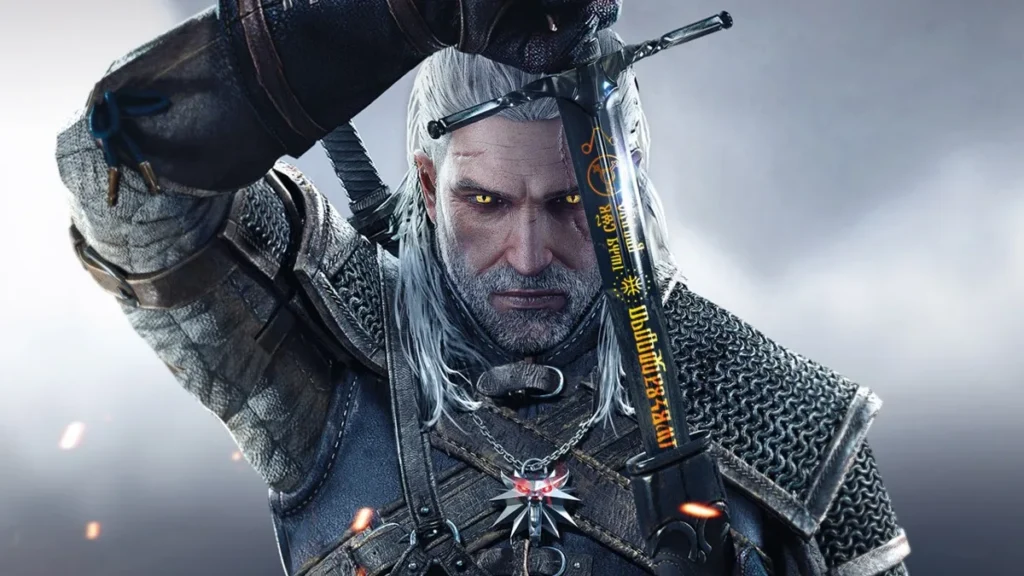
This is it—the pinnacle of RPG greatness. If I had to name a game that perfectly balances storytelling, gameplay, and world-building, it’s The Witcher 3: Wild Hunt.
From the moment I picked up this game, I didn’t just play as Geralt of Rivia—I became him. His dry wit, his unwavering determination to find Ciri, and his complex relationships made every moment feel deeply personal.
What truly sets The Witcher 3 apart is the moral complexity of its choices. Remember deciding whether to save a deserter or help a group of villagers, only to discover hours later how that decision spiraled out of control? That’s classic Witcher—no clear right or wrong, just shades of gray.
The game is a constant reflection of Andrzej Sapkowski’s world, where consequences are both unavoidable and unforgettable. The combat is equally masterful—fluid, sharp, and beautifully choreographed. Geralt’s pirouettes and spells flow seamlessly, turning every fight into a spectacle. The progression system shines as well, offering creative builds, from alchemy-focused warriors to spell-slinging swordsmen.
And then there’s the world. Velen’s tragic beauty, the vibrancy of Novigrad, and the haunting majesty of Skellige create a setting that feels alive and endlessly immersive. Pair it with an evocative soundtrack, and the experience becomes pure magic—it still gives me chills.
Whether you’re new to RPGs or a seasoned veteran, this is a journey worth taking every single time.
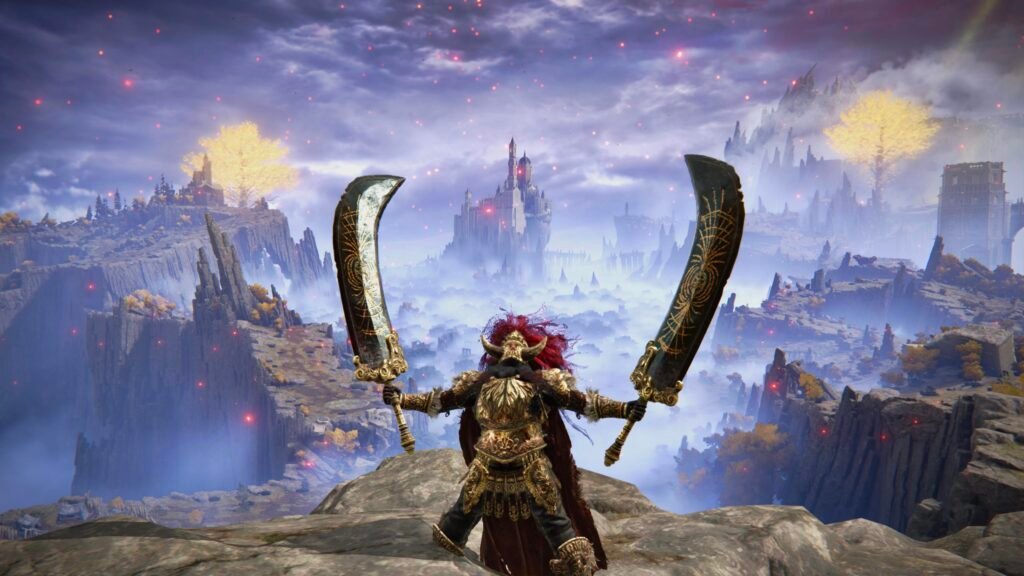
Elden Ring is a game that makes you feel like a tiny speck in a vast, awe-inspiring world. FromSoftware didn’t just create a game—they crafted an entire universe.
It combines the punishing combat of Dark Souls with the unbridled freedom of Breath of the Wild, and from the moment I stepped into the Lands Between, I was hooked. What truly blew me away was the sheer sense of discovery.
You can spend hours exploring ruins, stumbling across hidden bosses, or uncovering treasures that completely change how you approach the game. And when you inevitably encounter an enemy you can’t defeat the first time, the open-world design gives you the freedom to retreat, grind, and return stronger than ever.
Combat is where Elden Ring truly shines. It’s not just fighting—it’s a dance, a rhythm that tests your skill and precision. And then there’s Torrent, your trusty horse-goat hybrid. Whether galloping into battle or traversing the massive map, Torrent turns every journey into an epic adventure.
From its mind-bending lore to its jaw-dropping vistas, Elden Ring is a once-in-a-lifetime experience that every gamer needs to embark on.
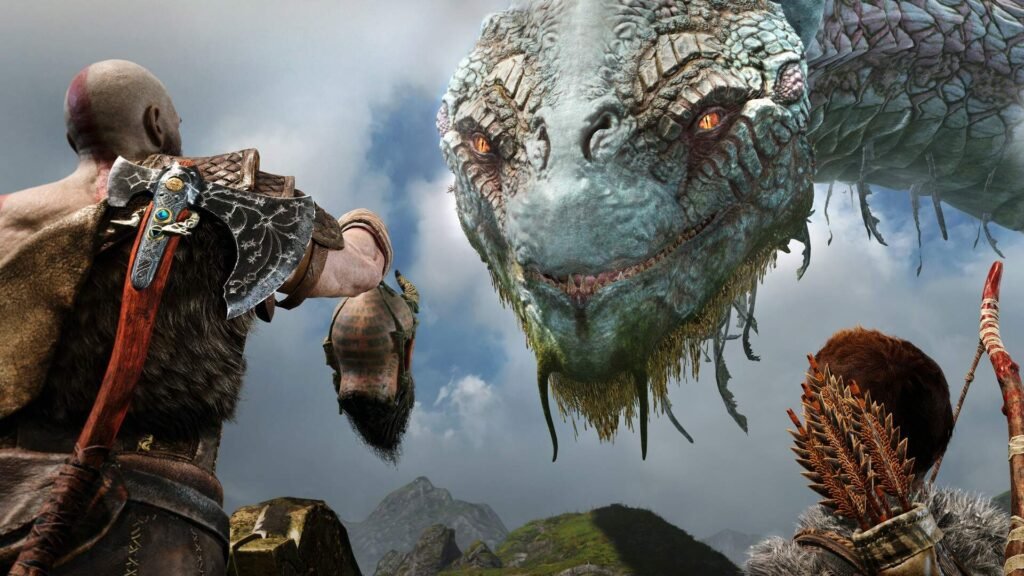
When God of War hit my console, I didn’t just play it—I lived it. As a longtime fan of Kratos, I was initially skeptical about the shift from Greek to Norse mythology and the more reflective, softer tone. But wow, it was delivered.
This game isn’t just about smashing through enemies—though the Leviathan Axe feels so satisfying to wield, it’s practically a character in its own right. It’s about the journey of a father and son: a broken warrior, Kratos, trying to reconnect with his son, Atreus, all while hiding his past as the Ghost of Sparta.
Their bond grows naturally, with moments of tenderness, frustration, and humor that feel deeply human. Whether walking through snowfields and watching Kratos’ footprints linger or standing atop cliffs with the northern lights illuminating the horizon, it’s like stepping into a Norse painting.
The combat feels weighty and deliberate, blending brutal takedowns with the strategic use of runic powers. The boss fights are exhilarating, with mythological beasts and gods that push you to your limits.
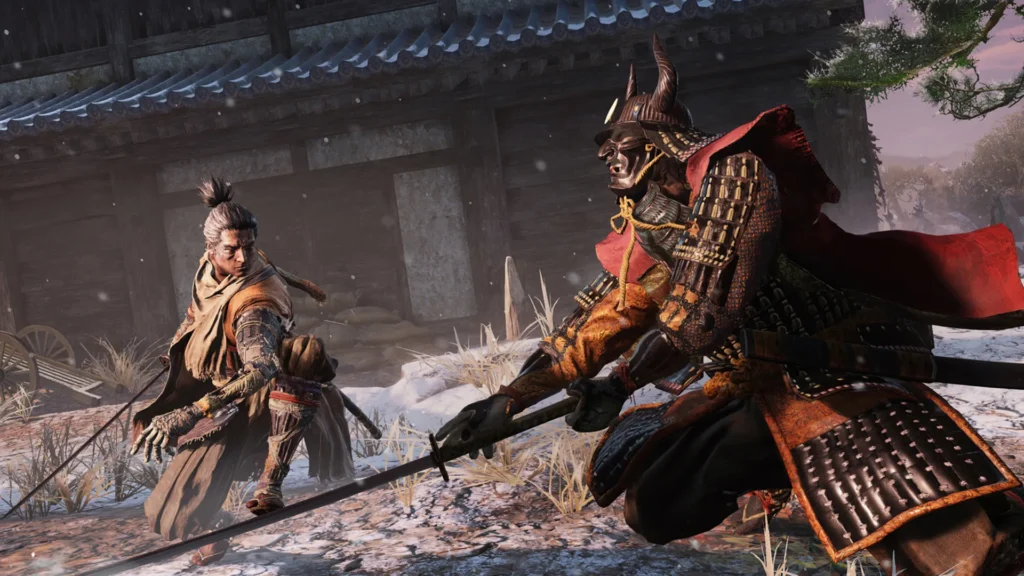
Sekiro: Shadows Die Twice is a test of patience, skill, and sheer determination. As a FromSoftware fan, I thought I knew what I was getting into—but Sekiro completely flipped the script.
Gone are the shields and stamina management of Dark Souls. In their place is a rhythm-based combat system that demands precision and guts.
What stood out to me was how the game punished hesitation. You’re not just hacking away—you’re engaged in a deadly dance with your opponent, parrying and countering at just the right moments to break their posture. The satisfaction of landing that perfect deathblow is unmatched.
Feudal Japan has never looked so hauntingly beautiful. From the cherry-blossom-filled Hirata Estate to the eerie Fountainhead Palace, every location is dripping with atmosphere. The verticality brought by the grappling hook gave exploration a fresh twist, making me feel like a stealthy ninja leaping between rooftops and cliff faces.
Each fight felt like a chess match. And when I finally defeated a foe like Genichiro Ashina, I felt like a god.
If you want a game that pushes you to your limits but rewards every step, this is the one. Let me know when you’re ready for the next game.

Cyberpunk 2077—a game that went from infamous to phenomenal. I’ll admit, I was skeptical when I revisited it after its rocky launch, but let me tell you, this game has transformed into something extraordinary.
The moment I stepped back into Night City with fresh eyes and no expectations, I found myself completely immersed. Night City is a living, breathing character.
From neon-lit alleys to high-tech skyscrapers, every corner feels alive. Even the flaws I noticed before, like repetitive NPCs, seemed trivial compared to the sheer scale and depth of the world. Exploring it felt like diving into a cyberpunk novel, with each side quest adding layers to the dystopian narrative.
What hooked me most was the character development. V’s journey, intertwined with Johnny Silverhand’s chaotic personality, creates one of the most unique dynamics in gaming. Every decision and every conversation felt like it carried weight, shaping the story in subtle yet impactful ways.
The gameplay was equally engaging—customizing my cyberware, hacking enemies, and mixing stealth with all-out chaos never got old. Sure, it’s not perfect, but now Cyberpunk 2077 stands as a testament to redemption and resilience.
It’s a must-play masterpiece. Just give it a chance to win you over.
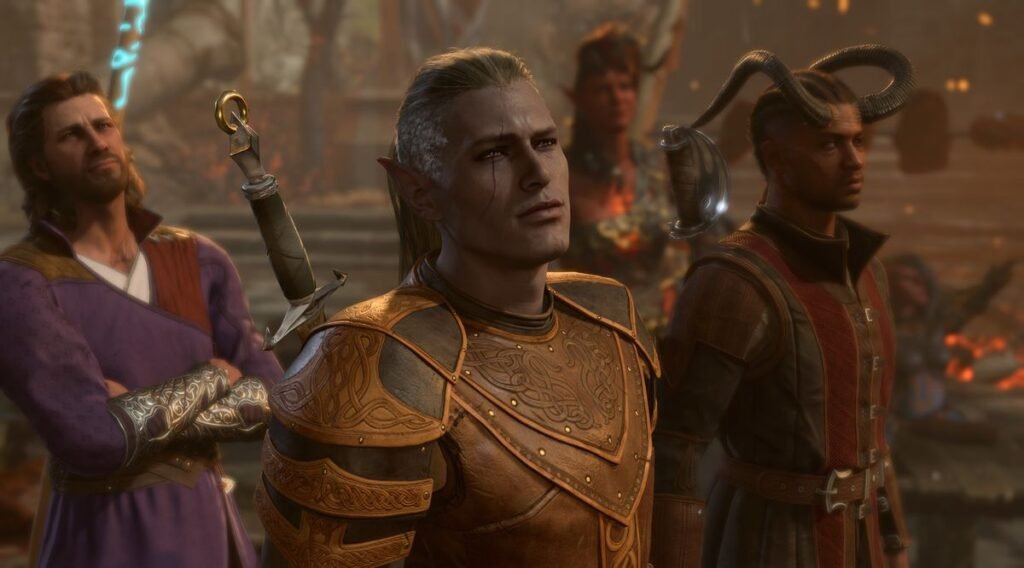
An RPG masterpiece, period. If you’re searching for the pinnacle of storytelling, gameplay depth, and choice-driven immersion, look no further than Baldur’s Gate 3.
It’s an epic fantasy saga that feels like a custom-tailored adventure every time you play. What blew me away was the sheer complexity and care that went into every quest, character, and dialogue option. Each choice carries weight, leading to outcomes that are sometimes thrilling, and other times, absolutely devastating.
I’ve played through multiple questlines, and no two playthroughs feel the same. The branching paths are staggering, offering replay value that puts most RPGs to shame.
Now, about the turn-based combat—let me be honest: at first, I thought it wasn’t for me. But once I dove in, it clicked. The strategy, the combos, the creative possibilities—it’s like playing a massive board game that comes to life. Chain reactions, well-planned character builds, and environmental tactics make every battle memorable.
I grew attached to each companion, their quirks, backstories, and the way they react to your decisions. It’s like every NPC has a soul.
Baldur’s Gate 3 isn’t just a game—it’s an experience that stays with you long after the credits roll.
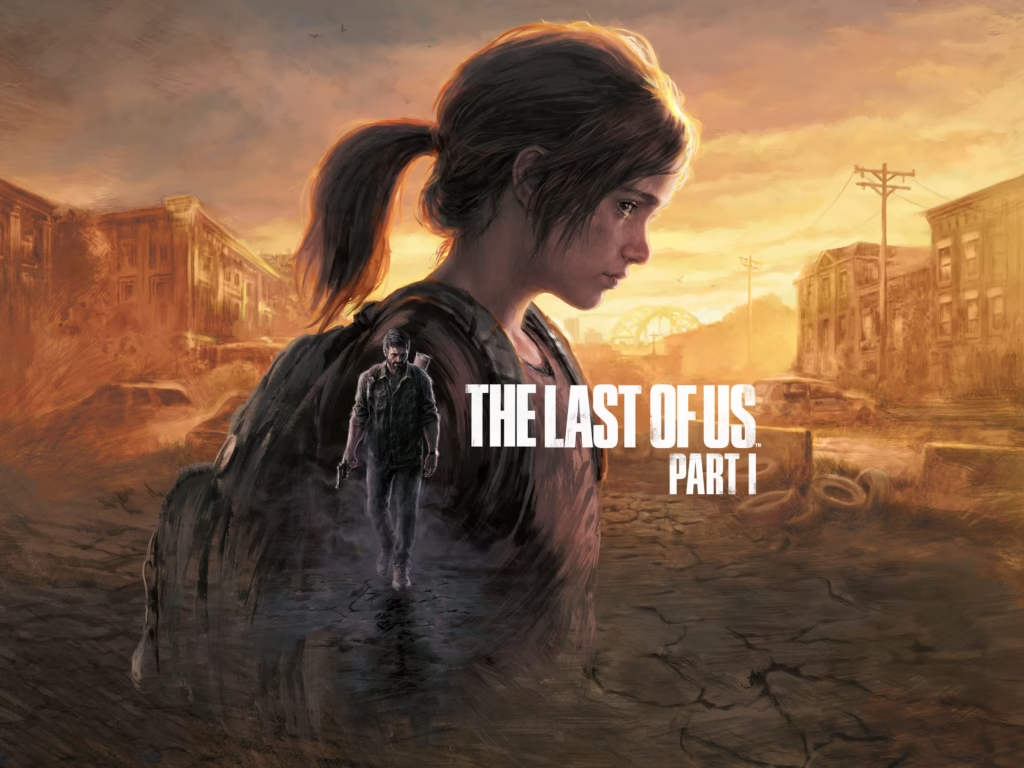
Heartbreaking, stunning, unforgettable. Those are the words that come to mind every time I think about The Last of Us. It’s not just a game—it’s a masterpiece of emotional storytelling and atmospheric gameplay.
From the very first moments, when the world starts crumbling around you, you’re not just a player; you’re a survivor in Joel and Ellie’s journey.
I’ve played this game over 30 times, and each playthrough leaves me just as emotionally wrecked as the first. The bond between Joel and Ellie is so real, so raw, that it’s impossible not to get attached. Every choice, every encounter, every desperate fight for survival feels earned.
But the scariest moments aren’t with the clickers; they’re with other survivors. The moral ambiguity keeps you on edge. The attention to detail is breathtaking—from the overgrown cities reclaimed by nature, to the sound design that fully immerses you. The Last of Us is as much about the atmosphere as it is about action.
And let’s not forget that hauntingly beautiful score. It’s perfection.
If you haven’t experienced this masterpiece, you’re missing out on a piece of gaming history. For me, it’s not just a game—it’s a lesson in storytelling done right.
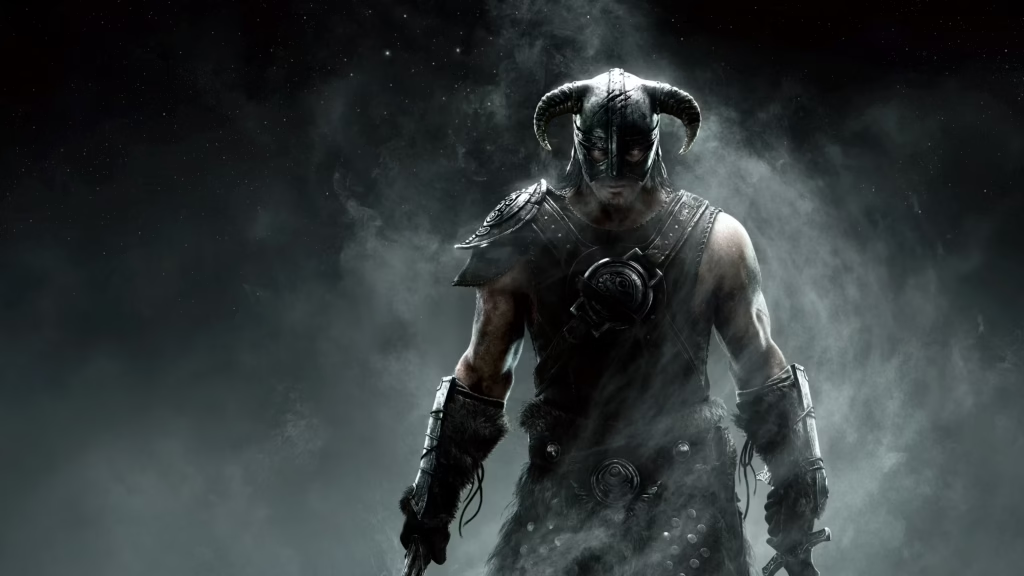
This game is a world I’ve lived in for countless hours. Released in 2011, Skyrim still feels timeless. The graphics, for its time, were breathtaking—the snow-covered mountains, dense forests, and sprawling cities created a landscape that completely pulled me in.
Even now, the scenery rivals modern titles like RDR2. The freedom in Skyrim is unmatched. Whether I wanted to follow the main quest, restore ancient guilds to power, or get lost in side quests, there was always something worth doing.
I loved leveling up my Dragonborn, exploring deep dungeons, and discovering powerful weapons. The sound design added so much—from the roar of a dragon to the quiet rustle of trees, it all felt alive.
The expansions made it even better. Dawnguard let me dive into the world of vampires and hunters, and Dragonborn took me to Solstheim to face Mirak, one of the series’ most fascinating villains.
Building a home and raising a family with Hearthfire added a cozy touch, and that soundtrack—it gave me chills. Tracks like “One They Fear” and “From Past to Present” are unforgettable.
Skyrim isn’t just a game to revisit—it’s a journey worth reliving forever.
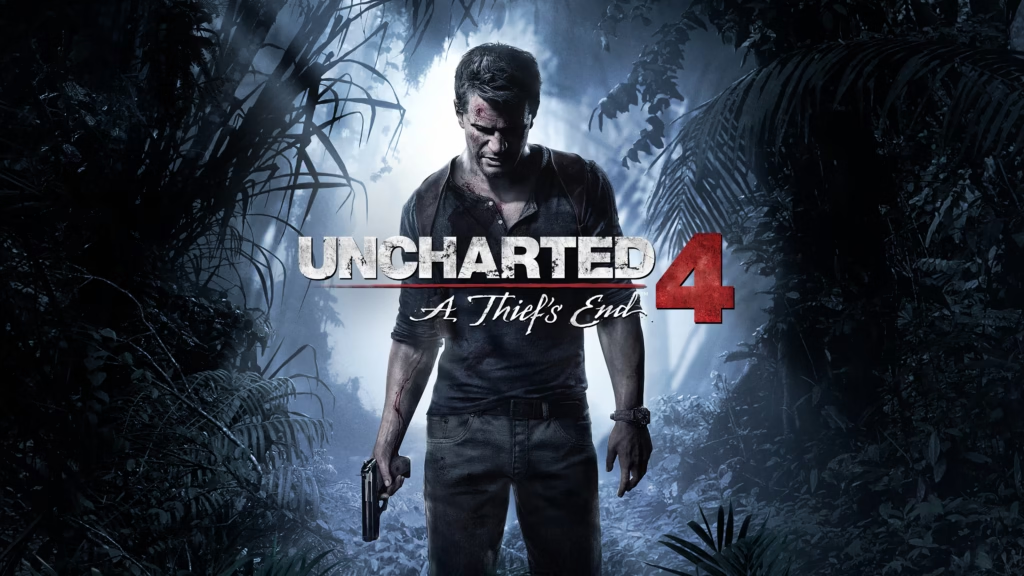
Uncharted 4 is the epitome of what an action-adventure game should be. I remember diving into it thinking, “Can this series get any better?” Spoiler alert: it absolutely does.
Nathan Drake’s final adventure is packed with heart-pounding action, jaw-dropping visuals, and a story so well told that it felt like I was binge-watching the best action movie ever made.
What stood out the most for me were the relationships. Nate’s bond with his brother Sam added an emotional weight that hadn’t been there before. Their banter and shared history pulled me in, making every decision feel deeply personal.
And let’s not forget Elena, whose character development was just as impactful. Every conversation felt real, relatable, and human.
I loved the gameplay—climbing treacherous cliffs, swinging over massive chasms, and engaging in shootouts that could rival any blockbuster action sequence. It all felt smooth and intuitive.
The Madagascar chase scene was a masterpiece. Uncharted 4 doesn’t just end Nate’s story—it gives it the send-off it deserves.
The emotional weight, stunning locations, and relentless pace make it unforgettable. It’s not just a game; it’s a farewell to a beloved hero, and it’s absolutely perfect.
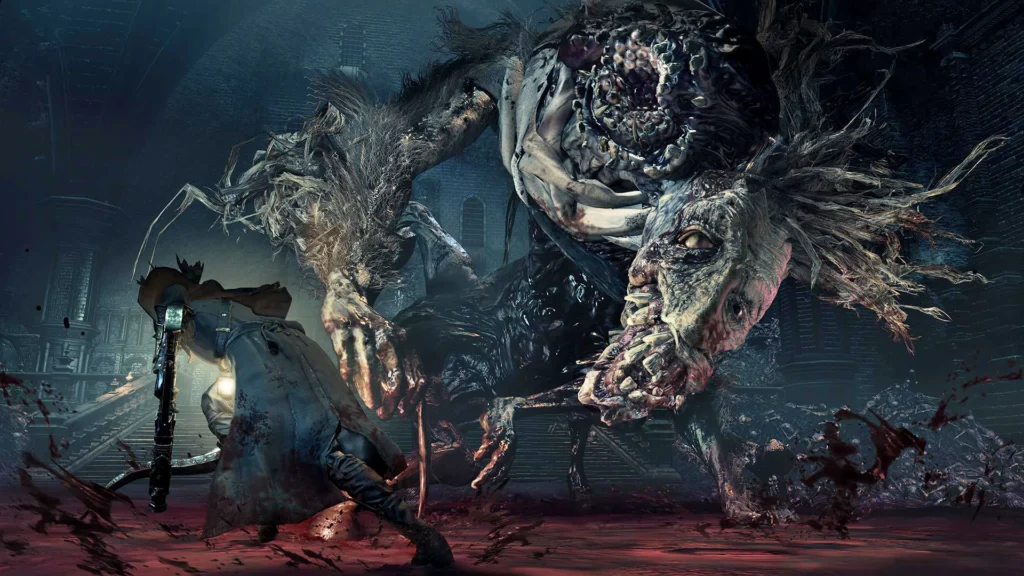
Bloodborne isn’t just a game—it’s a rite of passage. I’ll admit, when I first started, I was overwhelmed. The gothic streets of Yharnam, the grotesque enemies lurking around every corner, and the crushing difficulty felt like too much. But then, something clicked.
Suddenly, every death became a lesson. Every victory, a triumph. And before I knew it, I was hooked.
What makes Bloodborne stand out for me is its pace. Unlike Dark Souls, which encourages caution, Bloodborne dares you to be aggressive. The rally system, where you regain health by attacking back, makes combat thrilling and fast-paced.
Trick weapons like the Saw Cleaver or the Rifle Spear aren’t just tools—they’re extensions of your playstyle. Switching mid-combo felt so satisfying, turning every encounter into a brutal dance of survival.
The world’s design is jaw-dropping. From the claustrophobic streets of Yharnam to the haunting beauty of the Nightmare of Mensis, every area drips with atmosphere. The bosses are both terrifying and mesmerizing.
Lady Maria, Ludwig, and the Orphan of Kos still haunt my dreams—and I love it.
Bloodborne is punishing, but fair. Dark, but beautiful. It’s an experience that demands patience, courage, and skill. And if you give it your all, it rewards you with one of the most unforgettable adventures in gaming.
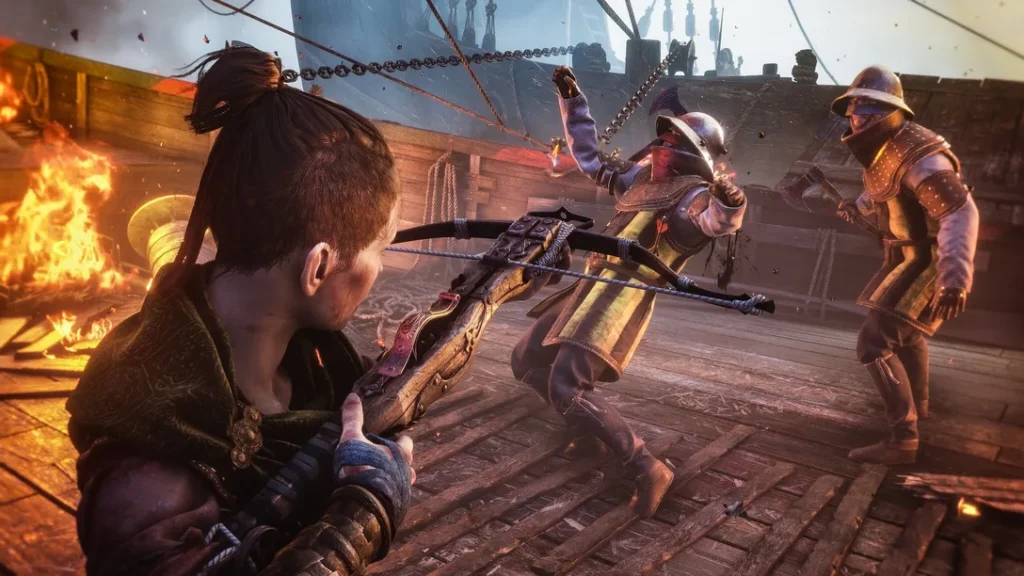
A Plague Tale hit me like a gut punch in all the best ways. This is one of those rare sequels that doesn’t just expand the story—it makes everything more intense, emotional, and downright unforgettable.
I went in wondering, “Can it top Innocence?” Amicia’s transformation blew me away. Watching her evolve from a scared, innocent girl into someone willing to embrace her darker side to protect Hugo felt deeply personal.
Charlotte McBurney’s voice acting is so raw and authentic that it made me tear up more than once. I could feel every ounce of Amicia’s love, fear, and desperation in every line she delivered.
I remember standing still in-game just to soak in the details—the creeping rats, the overgrown ruins, and the light cutting through a broken window. It’s hauntingly beautiful, but the creeping dread never lets you relax.
Every puzzle, every encounter with those swarms of rats, kept me on edge. And the story? Wow. This game didn’t just pull on my heartstrings, it tied them in knots.
By the end, I was emotionally wrecked but couldn’t stop thinking about it. This isn’t just a game—it’s an experience that stays with you.
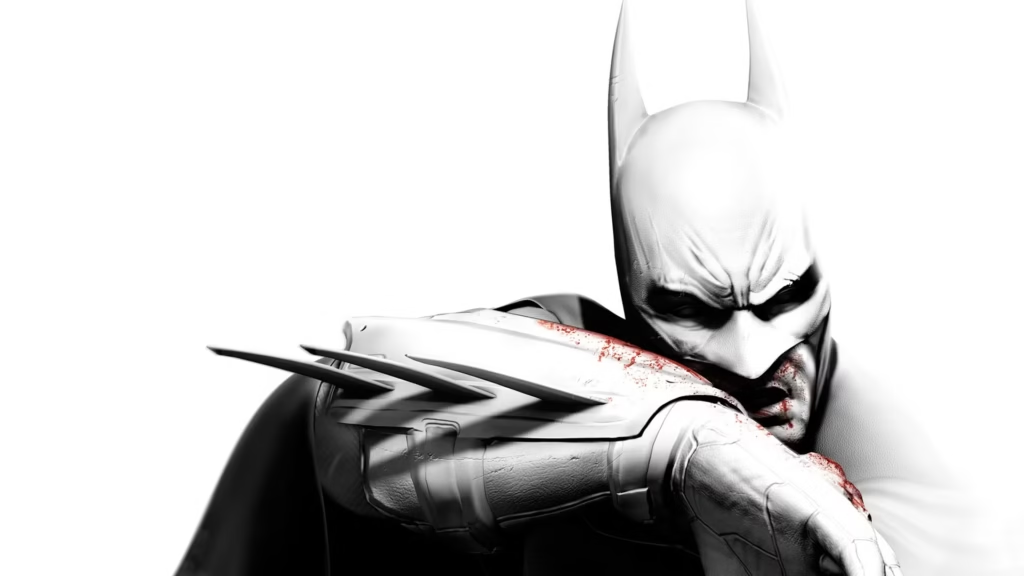
Batman: Arkham City is the superhero game that set the gold standard for every other superhero title to follow. This isn’t just a game—it’s the ultimate Batman experience.
When I first donned the cape and cowl, I didn’t feel like I was playing as the Dark Knight—I was the Dark Knight. What I loved most about Arkham City was how it captured the essence of Gotham.
The sprawling open-world prison feels alive, with its gothic architecture, dark alleys, and criminals lurking around every corner. The rogues’ gallery is a highlight. Getting to face iconic villains like the Joker, Two-Face, and Mr. Freeze felt like stepping into the pages of a comic book.
And let me just say—the Mr. Freeze boss fight? It’s one of the most creative and challenging encounters I’ve ever faced.
Arkham City doesn’t just make you feel like Batman; it makes you earn it. A perfect game for any fan of the Caped Crusader or action-packed adventures.
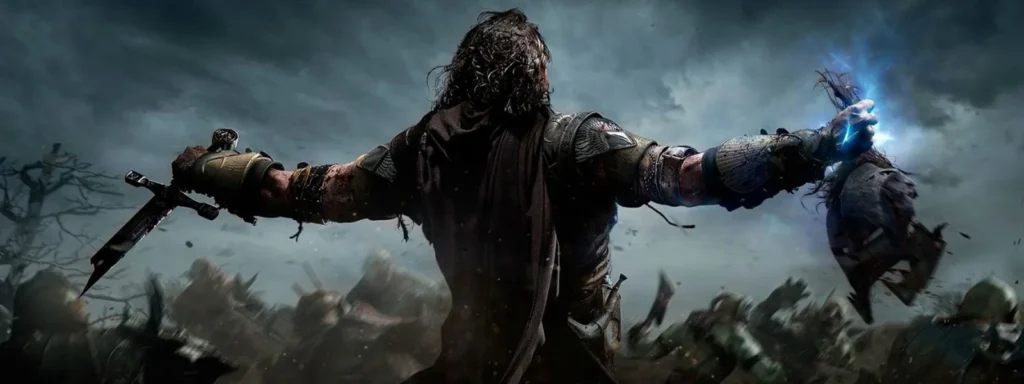
Middle-Earth: Shadow of Mordor is the kind of game that pulls you in and refuses to let go. For me, it’s not just a game—it’s a masterclass in how to make an open world feel alive and personal.
The first time I played, I couldn’t get over how every orc I faced had a unique personality, strengths, weaknesses, and even a grudge if they managed to take me down.
That Vendetta system? Absolute genius. It turns every encounter into something unforgettable. I remember battling an orc who’d killed me three times before. He’d grown stronger each time, and his taunts hit just as hard as his blows.
What really stands out is the gameplay variety. The combat is slick and brutal, a perfect blend of hack-and-slash action with wraith abilities that make you feel like a force to be reckoned with.
The stealth? So satisfying. Sneaking into an enemy camp to dominate a captain and turn his own army against him? Nothing compares to the chaos that follows.
Mordor itself is hauntingly beautiful. It’s not just a wasteland; it’s teeming with missions, secrets, and lore that make it feel alive. Every moment feels meaningful, from scaling towers to uncovering the map, to battling your way through an orc-infested stronghold.
This game captures the raw essence of vengeance, and every success feels like you earned it.
If you love turning your enemies into your pawns or just want to wreak havoc in Sauron’s backyard, this is a must-play.
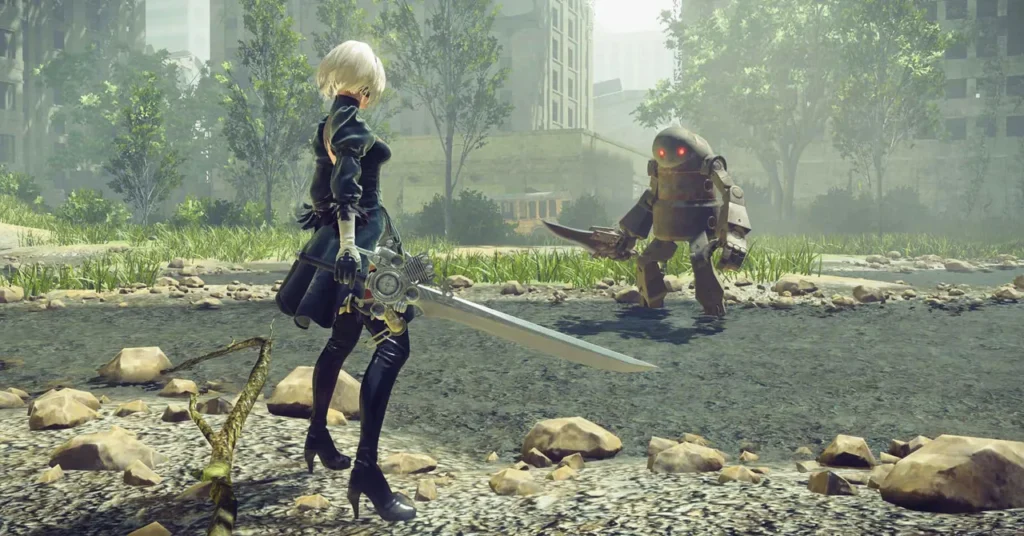
Nier: Automata is one of those rare gems that stays with you long after you put down the controller. This game offers a profound journey into philosophy, humanity, and existence itself.
The storytelling is a wild ride, packed with moments that made me laugh, cry, and sit back in utter disbelief. What struck me most was how the game constantly toyed with the idea of purpose—what it means to be alive, even if you’re not technically alive.
The characters are phenomenal. 2B, 9S, and A2 aren’t just protagonists; they’re complex, flawed, and deeply human, despite being androids. The connections between them, the conflicts, and the sacrifices they make hit harder than I ever expected.
Then there are the side characters, who, even in brief moments, leave an unforgettable impact.
Gameplay-wise, it’s an absolute treat. The combat is fluid and never repetitive, seamlessly switching between hack-and-slash, bullet hell, and even side-scroller mechanics.
The semi-open world design feels perfect, offering just enough freedom without overwhelming you. And the soundtrack? Easily one of the best in gaming history—haunting, emotional, and powerful.
Every playthrough reveals new layers, both in gameplay and story, until the final ending leaves you speechless.
For me, Nier: Automata isn’t just a game—it’s a masterpiece of storytelling and design. One that every gamer needs to experience.
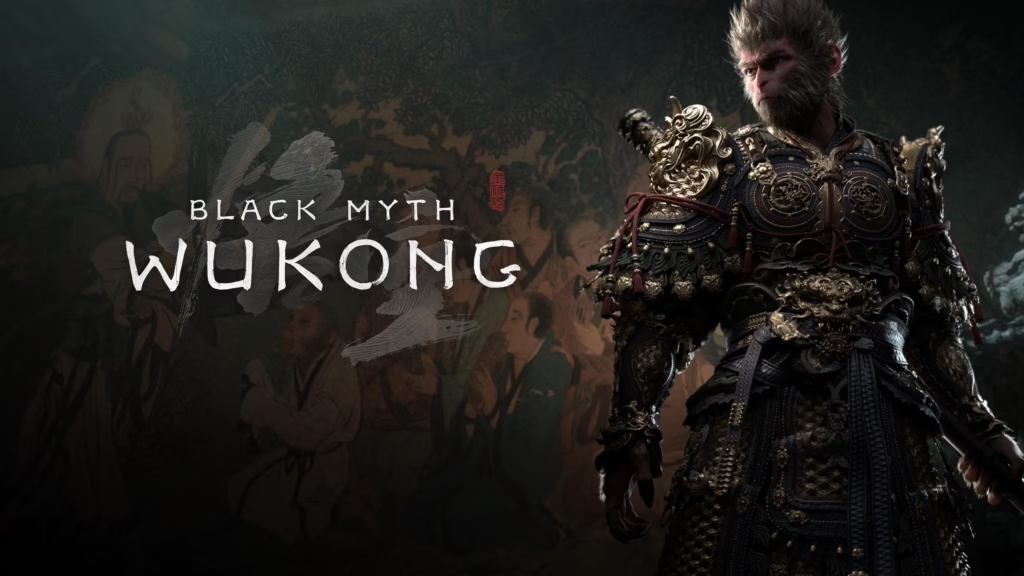
Black Myth: Wukong is a jaw-dropping masterpiece that has been worth every second of the wait. From the moment I stepped into its stunning world, inspired by Journey to the West, I felt like I was part of an ancient legend come to life.
The Unreal Engine 5 visuals are absolutely breathtaking. Every forest, cave, and mythological beast is rendered in such vivid detail that it feels like you’re wandering through a living painting.
The combat system is where this game truly shines. It’s fluid, intense, and challenging in the best way possible. I loved how the shapeshifting mechanic added layers of strategy. You’re not just fighting enemies—you’re outsmarting them by turning them into creatures or summoning clones.
And let’s talk about the bosses. They’re not just fights; they’re cinematic showdowns. Each one is more jaw-dropping than the last.
What hooked me most was how the game weaves mythology into its storytelling. Every encounter feels meaningful, every character has depth, and the narrative pulls you into Wukong’s journey of redemption and discovery.
Whether you’re leaping through bamboo forests or squaring off against a god, this game never stops delivering epic moments. For me, Black Myth: Wukong isn’t just an action RPG—it’s a love letter to Chinese folklore and a benchmark for next-gen gaming.
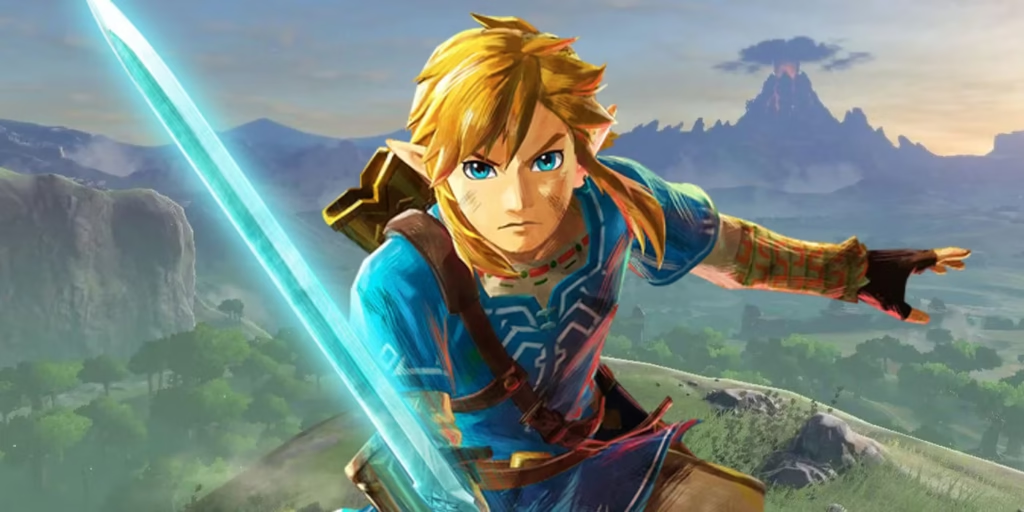
From the moment I set foot in Hyrule, I felt like an explorer charting unknown territory. This isn’t your typical go-here, do-that open-world game. The Legend of Zelda: Breath of the Wild is pure freedom. Climbing mountains, gliding over canyons, or cooking up weird food combos—I wasn’t just playing; I was living in this beautifully crafted world.
What blew me away was the attention to detail. I’m talking about lightning striking metal, enemies warming themselves by fires, and even your weapons breaking mid-battle. Frustrating, yes, but realistic. Every discovery felt personal—like when I accidentally set the grass on fire to create an updraft or stumbled upon a hidden shrine after hours of wandering.
It’s moments like these that make Breath of the Wild so special. The shrines had me scratching my head, but every solution felt rewarding. Plus, Ganon isn’t just waiting for you to come to him. You can rush straight into Hyrule Castle if you’re brave—or insane—enough.
This isn’t just the best Zelda game; it’s a masterclass in open-world design. If you haven’t played it yet, what are you even doing?
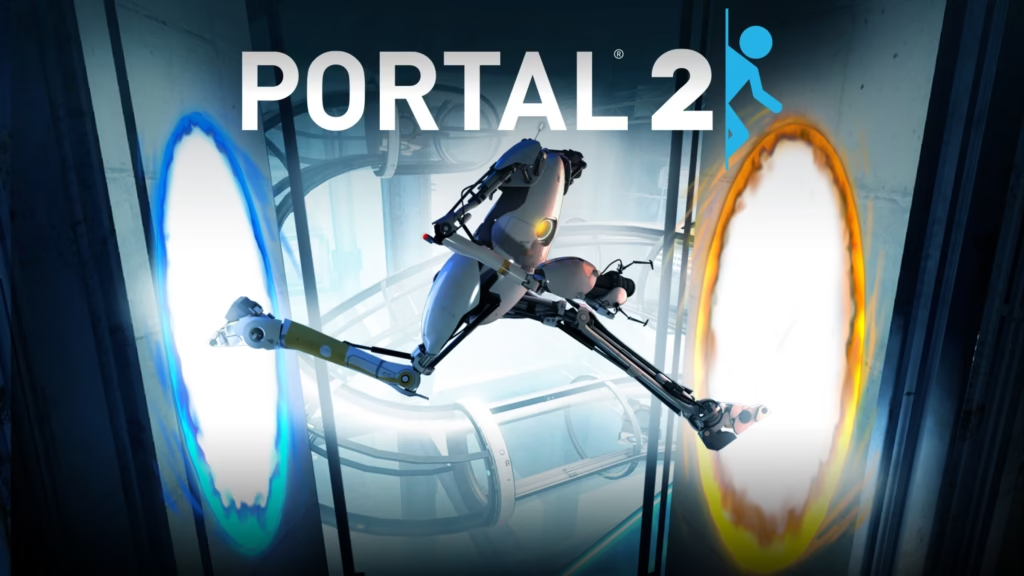
If you haven’t played Portal 2, you’re missing out on one of the smartest, funniest, and most satisfying games ever created. I still remember the first time I booted it up. From the moment GLaDOS woke up, dripping with passive-aggressive sarcasm, I was hooked. It’s not just a puzzle game; it’s a masterclass in storytelling and humor.
What stands out the most is how the game seamlessly combines mind-bending puzzles with an incredible narrative. The Portal gun isn’t just a gimmick; it’s the key to some of the most creative problem-solving I’ve ever experienced in a game. Whether it’s redirecting lasers, flinging yourself through the air, or figuring out how to use gels to bounce or slide, every challenge made me feel like a genius—or an idiot—until I figured it out.
I’m a huge fan of its humor. Wheatley, the lovable and clueless AI, and GLaDOS’s deadpan one-liners had me laughing out loud. But it’s not all laughs. The story delves into the eerie history of Aperture Science in a way that had me genuinely invested. Playing Portal 2 feels like you’re outsmarting the smartest people in the room. It’s clever, engaging, and endlessly replayable.
A 10 out of 10 experience every single time.

I’ll never forget the moment I first wandered into the hauntingly beautiful world of Hollow Knight. What started as a simple indie platformer quickly became one of the most rewarding and unforgettable gaming experiences I’ve ever had.
If you’re into atmospheric storytelling and challenging gameplay, this game is pure perfection. The first thing that struck me was the world of Hallownest. Every corner feels alive—well, as alive as a bug-infested, decaying kingdom can be. The eerie music, the hand-drawn art style, and the cryptic NPCs all combine to create an atmosphere so rich that I felt completely absorbed.
Exploring the labyrinthine caverns, uncovering hidden secrets, and piecing together the lore made me feel like an adventurer unraveling an ancient mystery. The combat is fluid, precise, and unforgiving in the best way. Every boss fight feels like a puzzle in itself, demanding quick reflexes, strategic thinking, and just a pinch of luck. The sense of accomplishment when I finally defeated the Radiance after dozens of attempts was unmatched.
And let’s not forget the incredible amount of content. For a game that costs less than a dinner out, Hollow Knight offers a world brimming with secrets, challenges, and replayability.
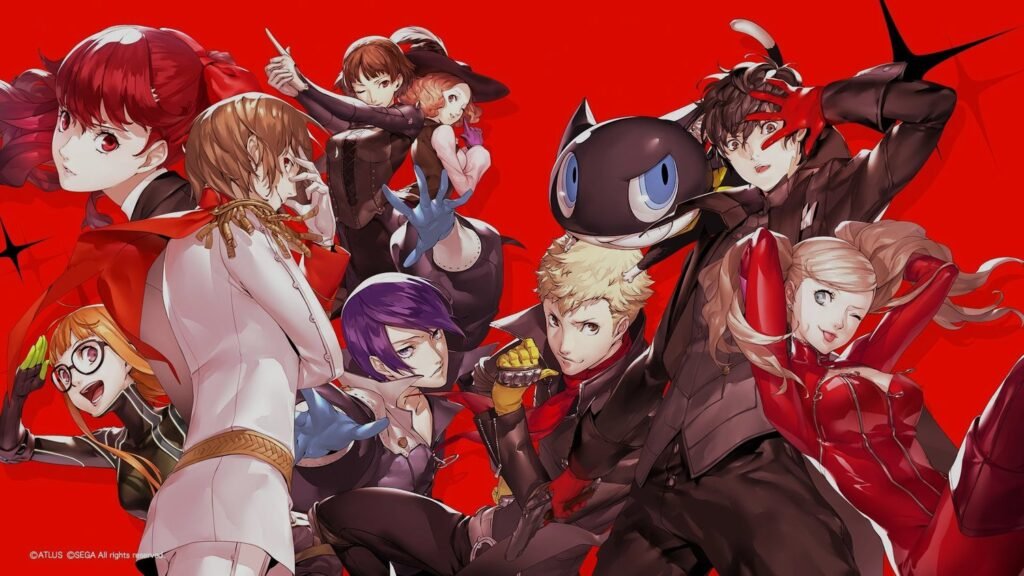
I’ll admit, I was a little skeptical about its length when I first started, but those 100-plus hours flew by faster than I expected. By the end, I didn’t just play the game—I lived it.
The premise is captivating. You’re a teenager who becomes a phantom thief, diving into the twisted psyches of corrupt individuals to steal their distorted desires. The dual life of being a high schooler by day and a crime-fighting rogue by night is both unique and satisfying. Balancing classes, friendships, part-time jobs, and dungeon crawling felt surprisingly immersive and rewarding.
What truly hooked me were the characters. Each of your teammates is bursting with personality, and as their stories unfold, you can’t help but root for them. From the upbeat Ryuji to the enigmatic Makoto, every bond you build feels meaningful. The relationships aren’t just filler—they impact the gameplay and, honestly, your heart.
The combat system is stylish and strategic, and the addition of Showtime attacks in Royal makes it even better. And don’t even get me started on the jazzy, electrifying soundtrack. It’s a vibe.
20 games that aren’t just worth playing—they’re worth dropping everything for. Seriously, these games are experiences, adventures, and emotional roller coasters rolled into one. Whether you’re exploring the gritty streets of Gotham, fighting your way out of the underworld, or sailing the high seas with your crew, these games define what it means to fall in love with gaming.
Leave a Reply